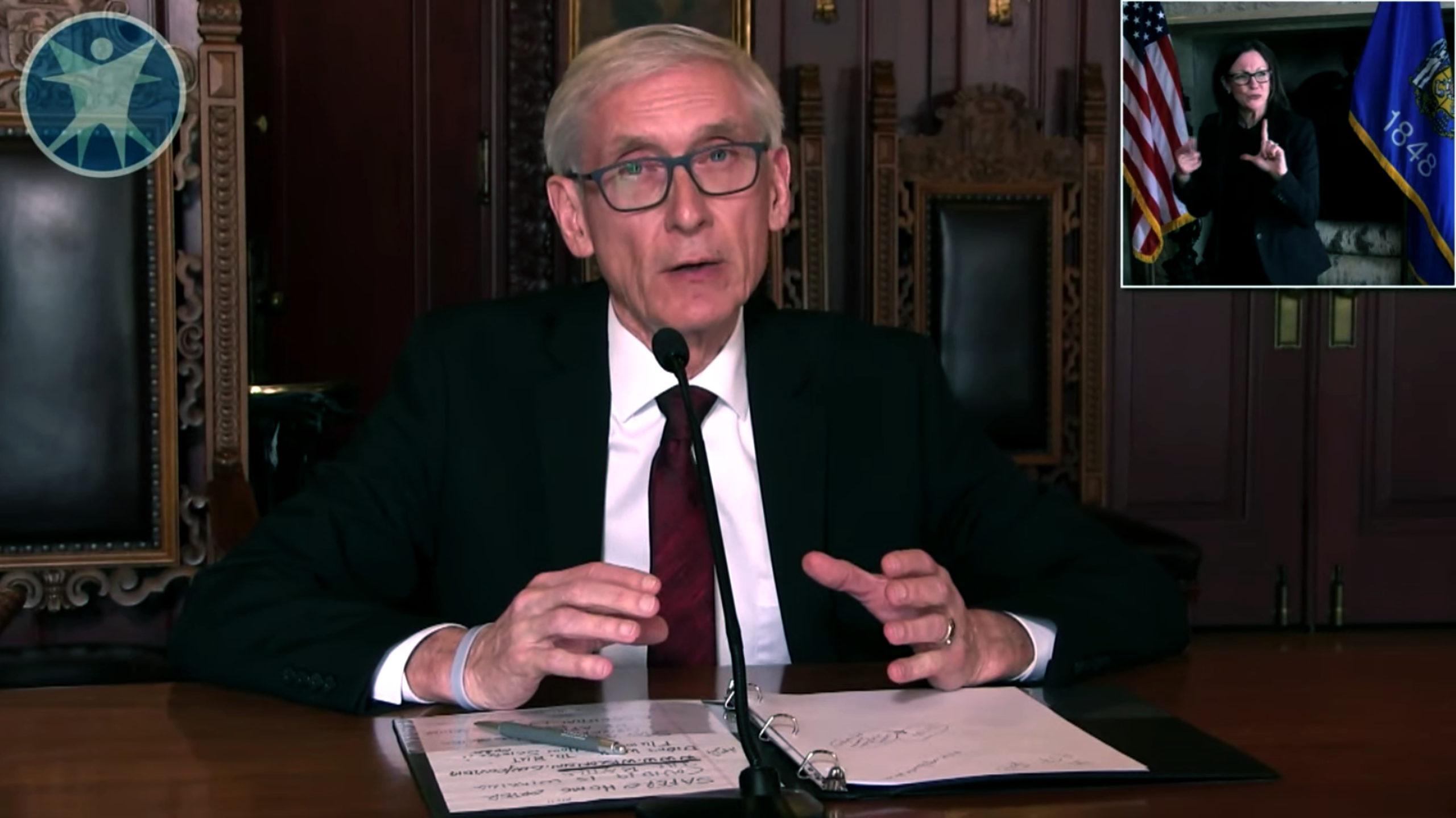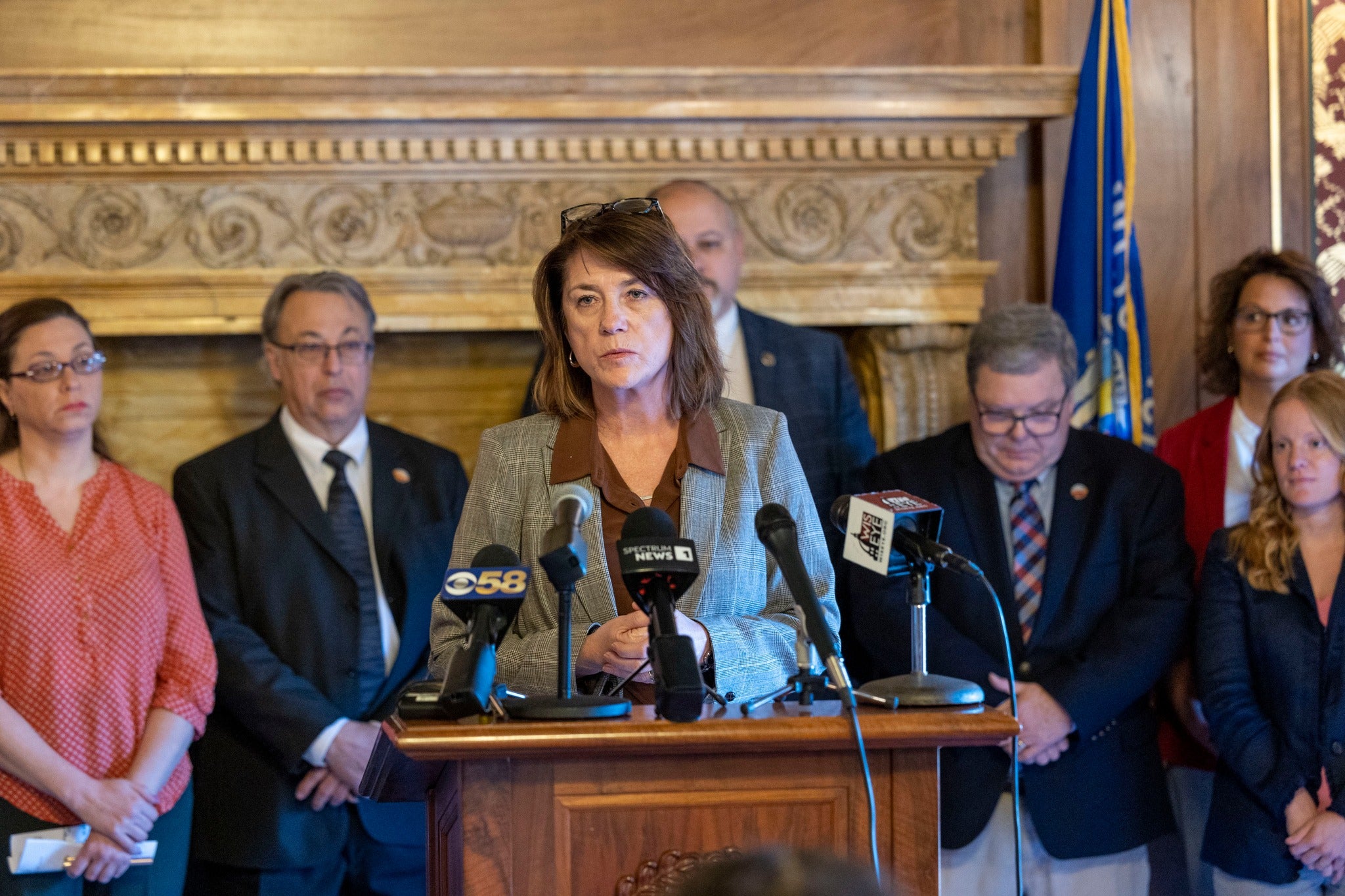Gov. Tony Evers has signed legislation to address the COVID-19 pandemic in Wisconsin despite concerns that the measure left critical needs unmet.
Evers signed the bill Wednesday just one hour after it passed the Senate 32-0 and a day after it passed the Assembly on a 97-2 vote.
It lifts a one-week waiting period for unemployment insurance in Wisconsin and requires health insurers to cover COVID-19 testing. It also bars insurers from discriminating against people who have or have had the virus.
News with a little more humanity
WPR’s “Wisconsin Today” newsletter keeps you connected to the state you love without feeling overwhelmed. No paywall. No agenda. No corporate filter.
The new law will also clear the way for Wisconsin to qualify for additional federal Medicaid funding made possible by the $2 trillion U.S. CARES Act that passed Congress last month.
“My pen has been waiting for weeks to sign legislation that guarantees Wisconsin will capture our fair share of federal dollars under the CARES Act and ensures workers experiencing unemployment and underemployment won’t be forced to wait an extra week for needed benefits to kick in,” Evers said in a statement Wednesday. “This bill is finally a step in the right direction, but there is much more work to be done.”
Senators debated the bill briefly Wednesday morning during a virtual session of the Senate. Most lawmakers participated over webcams, either from home or from their Capitol offices.
“This bill isn’t perfect and it might be the first bill of a number that we are going to have to pass in the Legislature, but it is timely, and I think it’s been well thought out and I think it will help,” said Sen. Majority Leader Scott Fitzgerald, R-Juneau. “Wisconsinites have endured great sacrifice and the measures that we have taken and that the governor has taken so far are working.”
Democrats supported the bill even though several of them said more needed to be done.
Evers sent a letter to GOP leaders saying that while the measure was a positive first step, it failed to require insurers to cover all testing, treatment, prescriptions and vaccines related to COVID-19. He said it also lacked “meaningful support for small businesses, farmers, and local communities.” Evers also criticized the plan for not doing more to protect first responders.
Unions criticized a provision added to the bill Tuesday that they say will require police and firefighters to prove they were exposed to a confirmed case of COVID-19 in order to qualify for worker’s compensation.
“The presumption requires them to approve it. It’s not a presumption at all,” said Jim Palmer, executive director of the Wisconsin Professional Police Association.
More broadly, the plan leaves some question about how the state will respond to COVID-19 after Evers’ emergency powers expire May 11.
“The ripple effect of what has happened to our state and our economy and our communities and our families and financial insecurity that is going to still be in existence — it doesn’t end on May 11,” said Sen. Jennifer Shilling, D-La Crosse.
Evers had previously called for legislation that would give his administration the ability to spend whatever is necessary to address the COVID-19 pandemic. He also called on legislators to extend his emergency powers indefinitely.
Republicans rejected the governor’s plans but also backed away from their own proposal that would have given the Legislature’s budget committee unilateral control over spending cuts that will likely be necessary because of a downturn in the state’s economy.
Wisconsin Public Radio, © Copyright 2026, Board of Regents of the University of Wisconsin System and Wisconsin Educational Communications Board.







